Mother-In-Law Makes It Hard For Cat Mom To Take Care Of Her Recovering Husband, Gets Called Out For Crossing The Line
While nobody likes being sick, everyone experiences it occasionally. Sometimes, it's a simple cold or stomach virus that goes away in a few days; other times, it's a fractured bone or the aftermath of surgery that takes weeks or months to heal.
At times, it can be a far more serious condition with long-term implications, either mental or physical. It's never easy to deal with illness in a marriage, regardless of the circumstances.
When your partner becomes ill, it presents an opportunity for a little more help in your marriage. This selflessness has the magical ability to draw you closer than you may have felt in a long time.
But what happens when your mother-in-law interferes with your ability to care for your spouse? Well, that is what we see in today's story, and the OP just had to bring it to the Reddit community.
The OP has been married for four and a half years, and her husband recently had minor surgery on his nose. They agreed that after the surgery, they would stay at her mother-in-law’s house because it’s close to the hospital.
While OP's husband was under anesthesia, her mother-in-law revealed to the doctor that OP had pets and that it would be better for her son to spend more days at her house. This posed a threat to the OP, as her MIL ensured she was the one taking care of her son.
The OP writes

It would be better to prevent any pet fur from getting in the wound
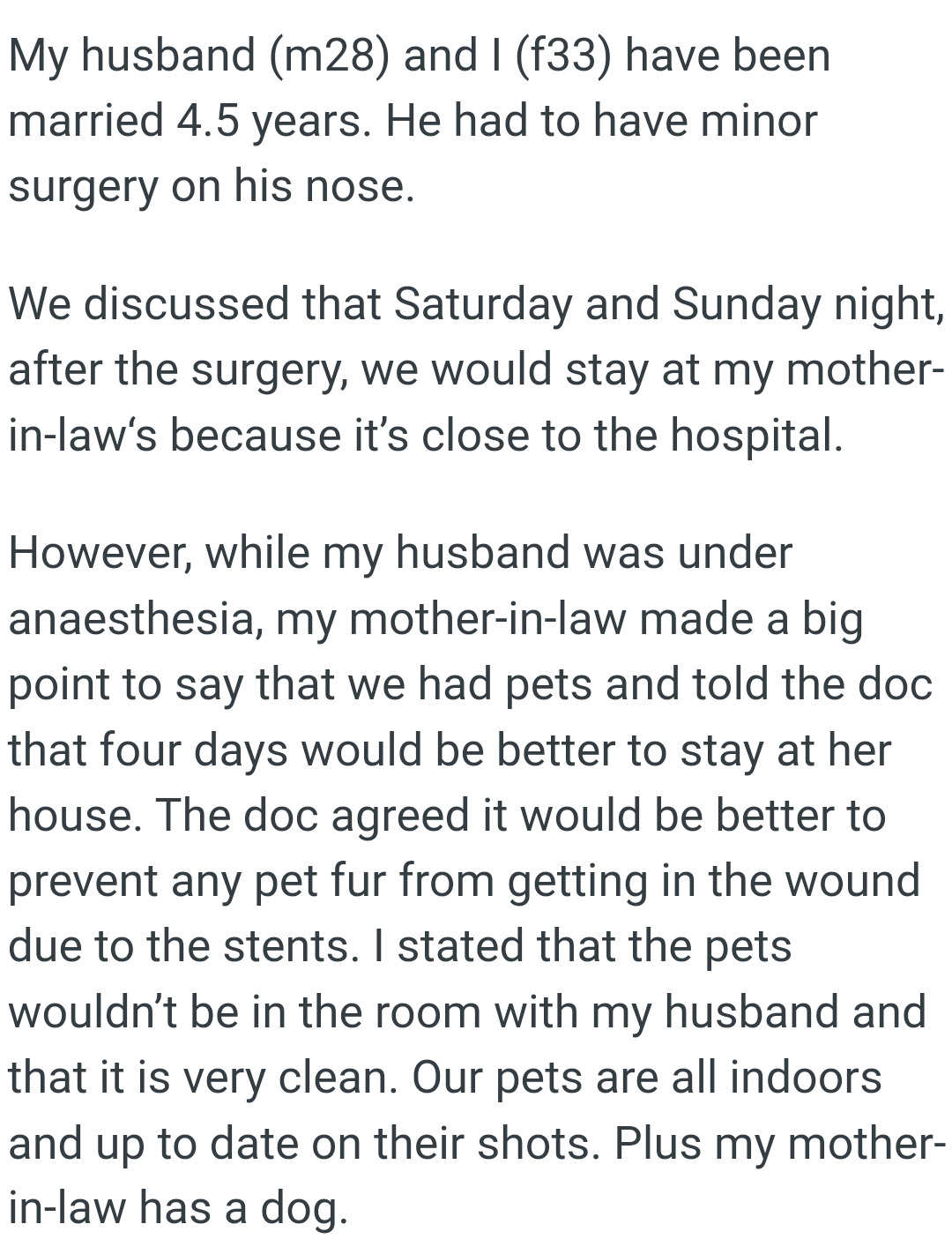
Understanding Caregiver Dynamics
In situations where caregiving is involved, as seen in this case, the dynamics can become quite complex. A study from Johns Hopkins University highlights how caregiver stress can significantly impact family relationships and communication patterns.
When caregivers feel overwhelmed, it often leads to increased irritability and conflict with other family members, as seen in the tension between the mother-in-law and the cat mom. Understanding these pressures is key to addressing conflicts effectively.
He spent the night at her mother-in-law’s house while the OP came back home
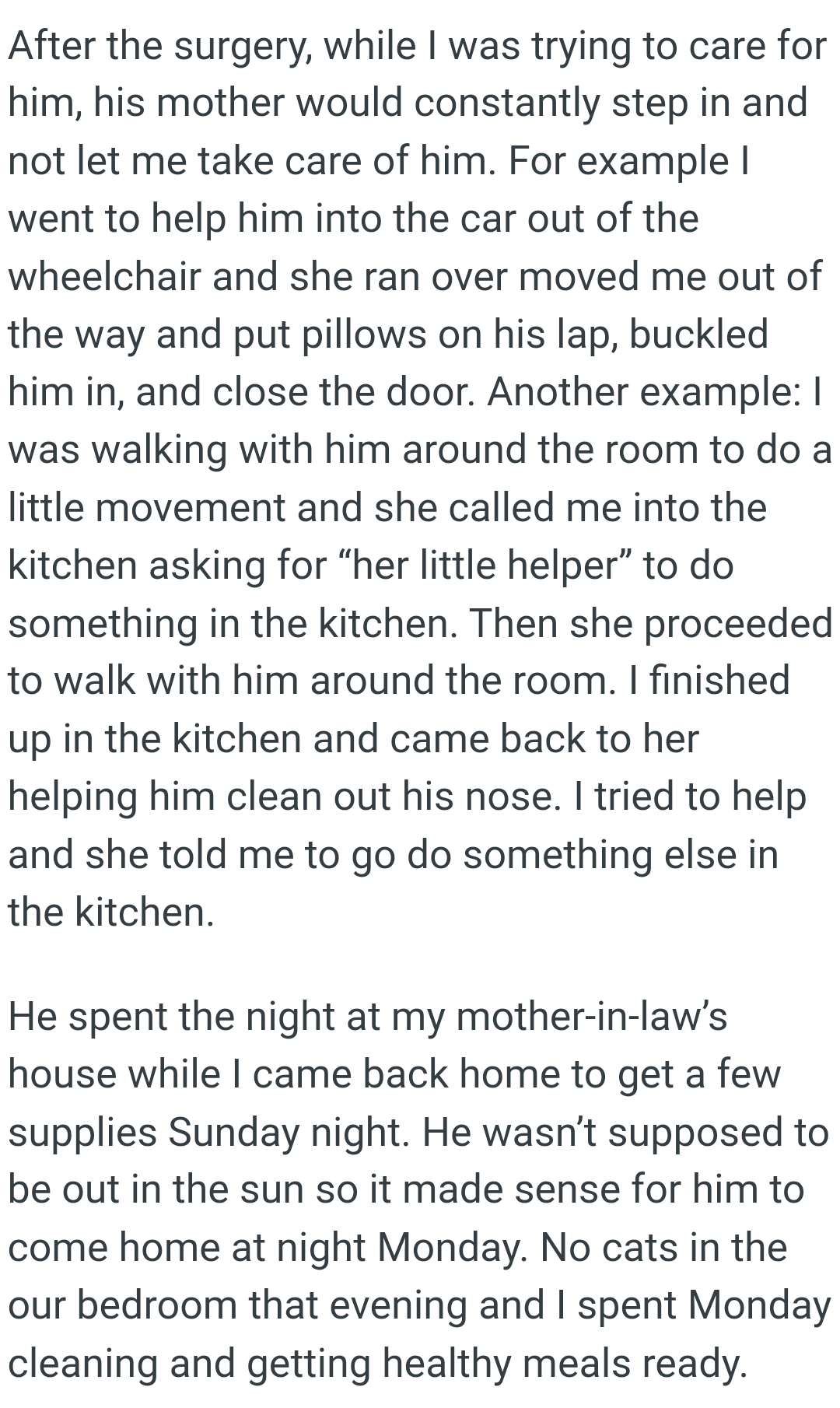
Turns out the wound wasn’t being cleaned well enough
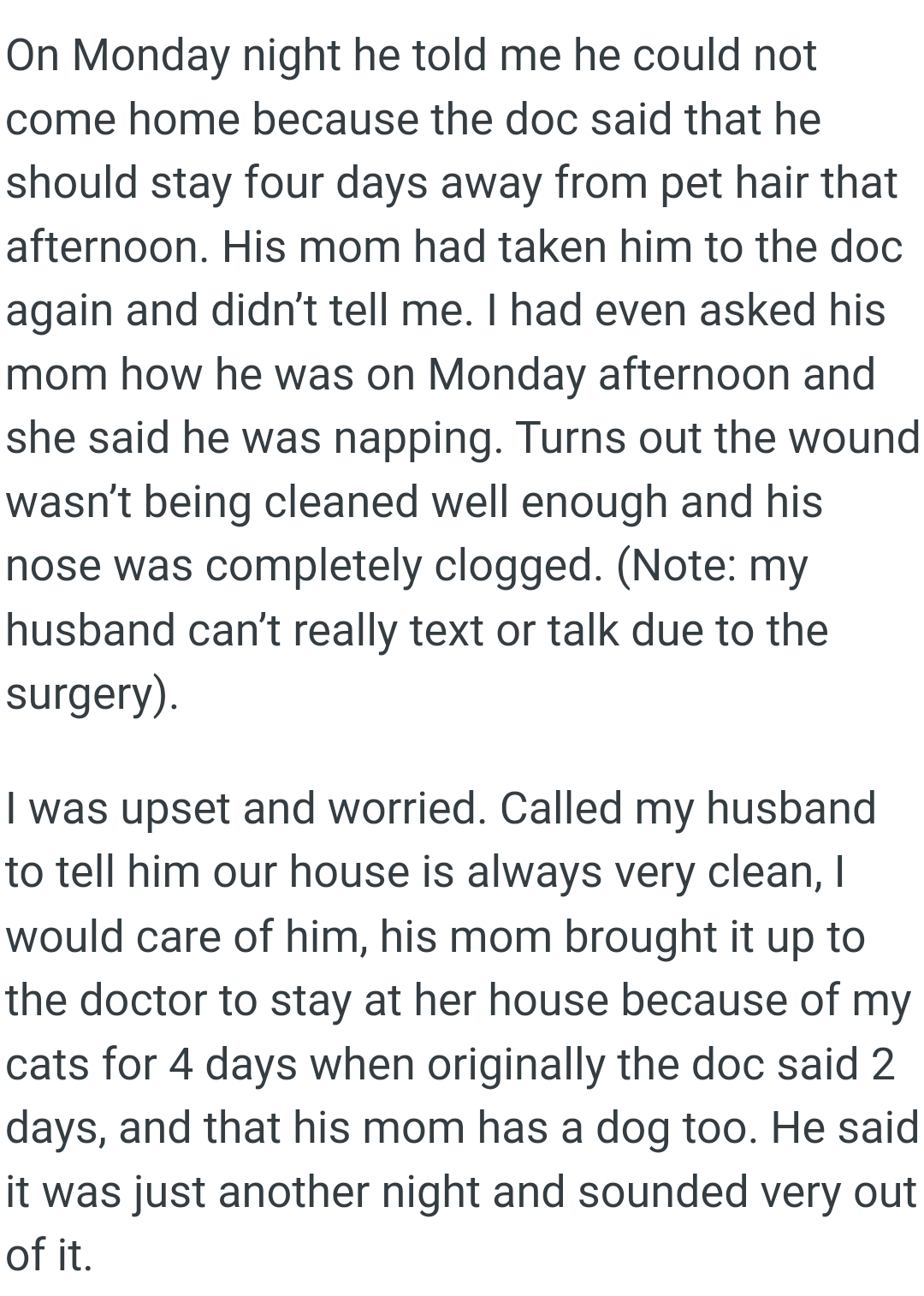
OP has offered the following explanation for why they think they might be the AH:
Being upset with my MIL. 2. Because she may just be caring for her son.
OP feels like her MIL was using the pets as an excuse
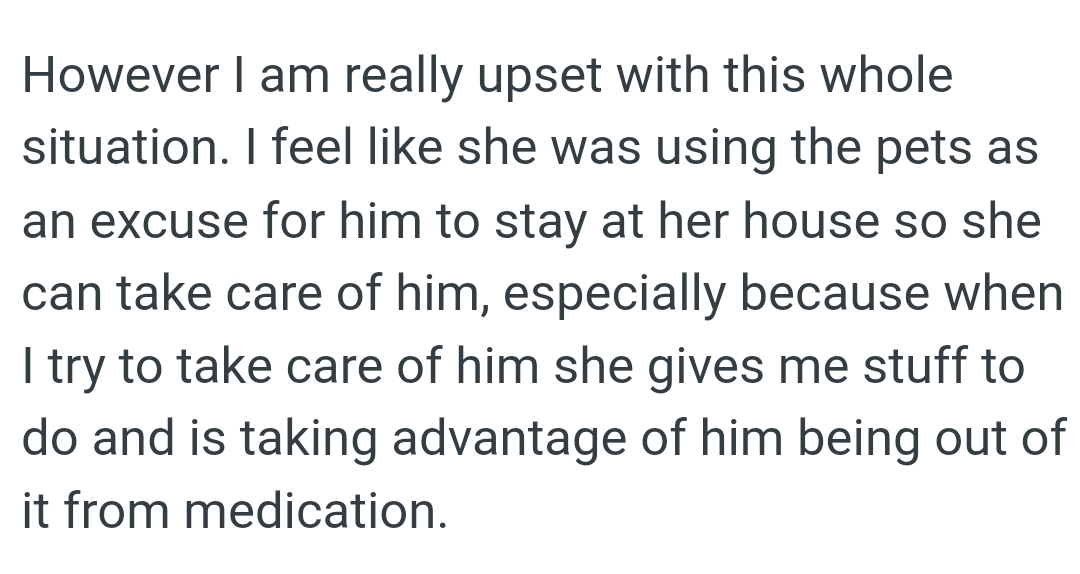
And the comments roll in...

Research indicates that effective communication is crucial in caregiving situations to prevent misunderstandings. A clinical psychologist suggests that family members need to openly discuss their roles and expectations to avoid feelings of resentment and frustration.
This approach can help establish a collaborative caregiving environment where everyone feels valued and understood, ultimately leading to better outcomes for the recovering husband.
Most men can be wimps
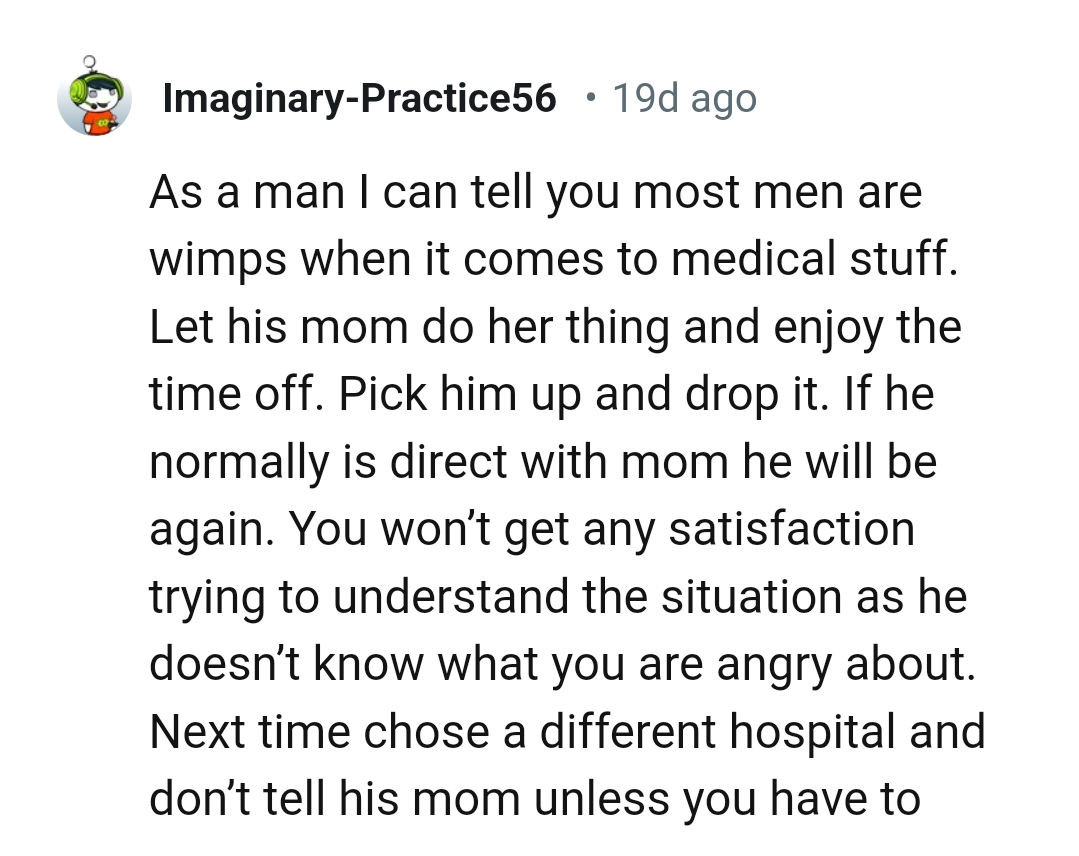
The OP should talk to her husband

The Role of Emotional Boundaries
Emotional boundaries are essential in maintaining healthy relationships, particularly in caregiving scenarios. According to research published in the Journal of Family Psychology, families that fail to establish these boundaries often experience heightened conflict and stress.
In this case, the mother-in-law's actions may stem from a lack of understanding about the cat mom's emotional needs and her capacity to manage her responsibilities. Recognizing and respecting these boundaries can significantly reduce tension.
Misunderstandings should be avoided
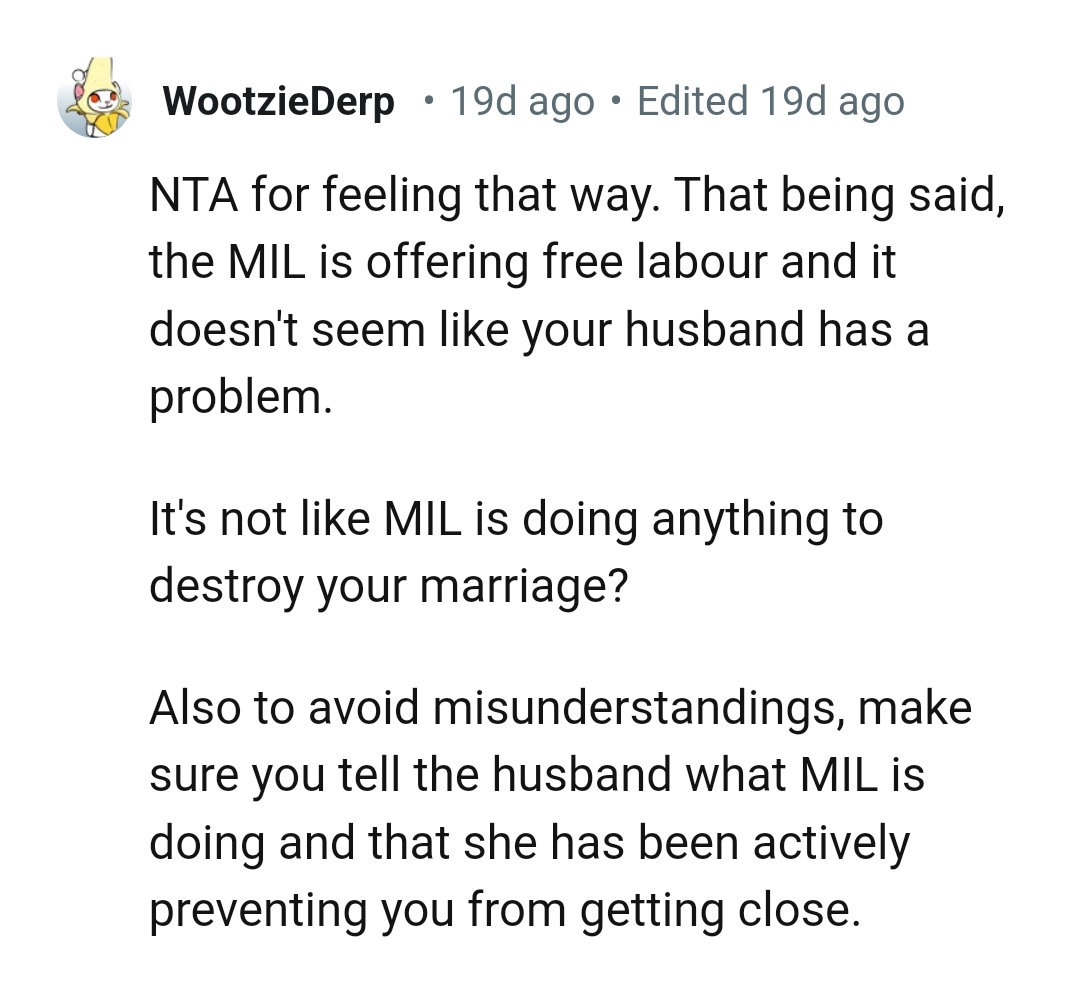
And the comments continue...

The OP left this update later on
He was alert and his usual self, so we talked. I shared what happened while he was under and shortly after his surgery. He apologized that his mom manipulated the situation and that he couldn’t step in. He said if he ever had another surgery (hopefully not), we would go straight home afterward, and he would be firm with his mother and the doctor/hospital about what he wanted before going under. I’m going to pick him up this morning.
His mom has to take other things into consideration
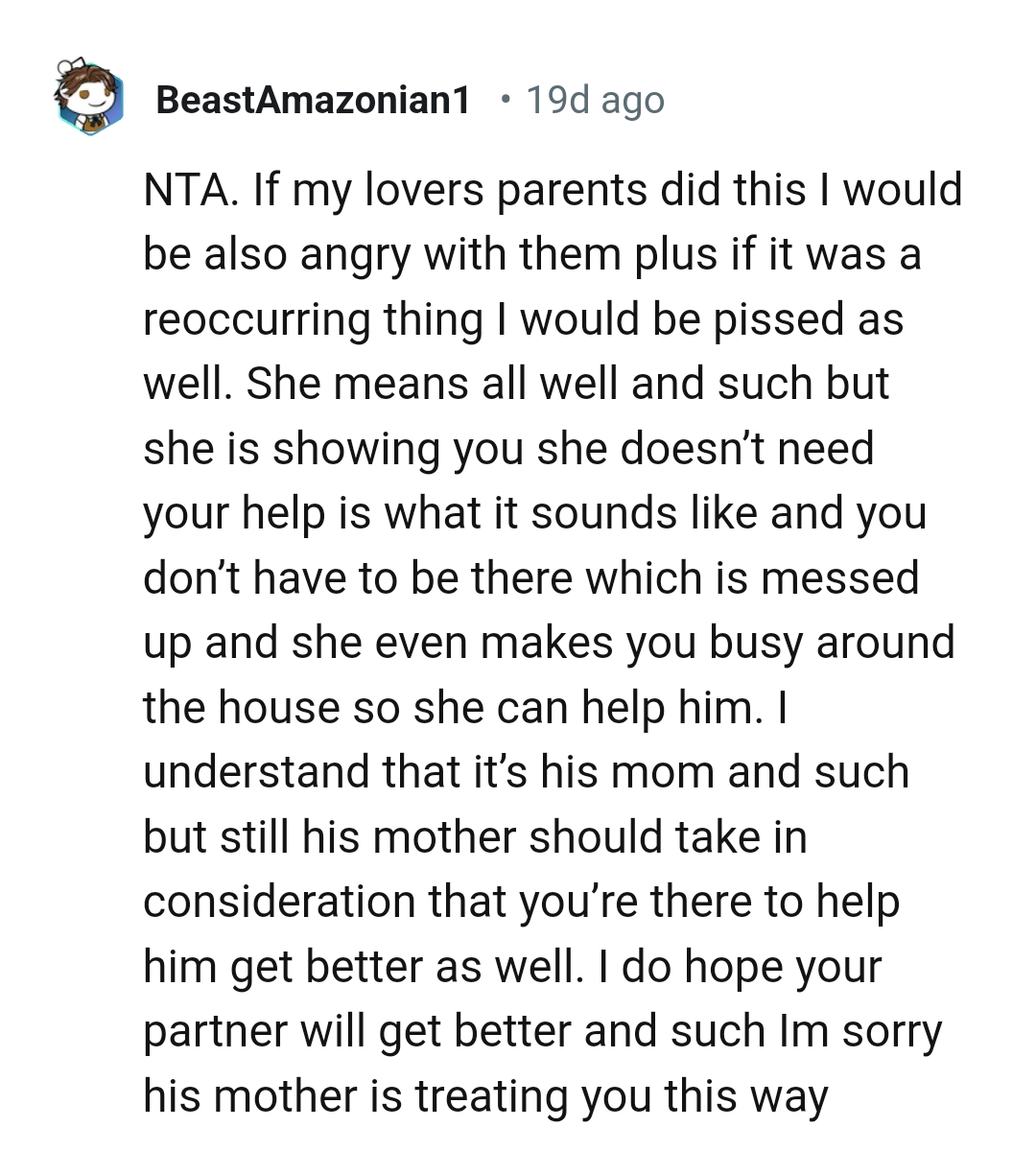
Having him set her straight
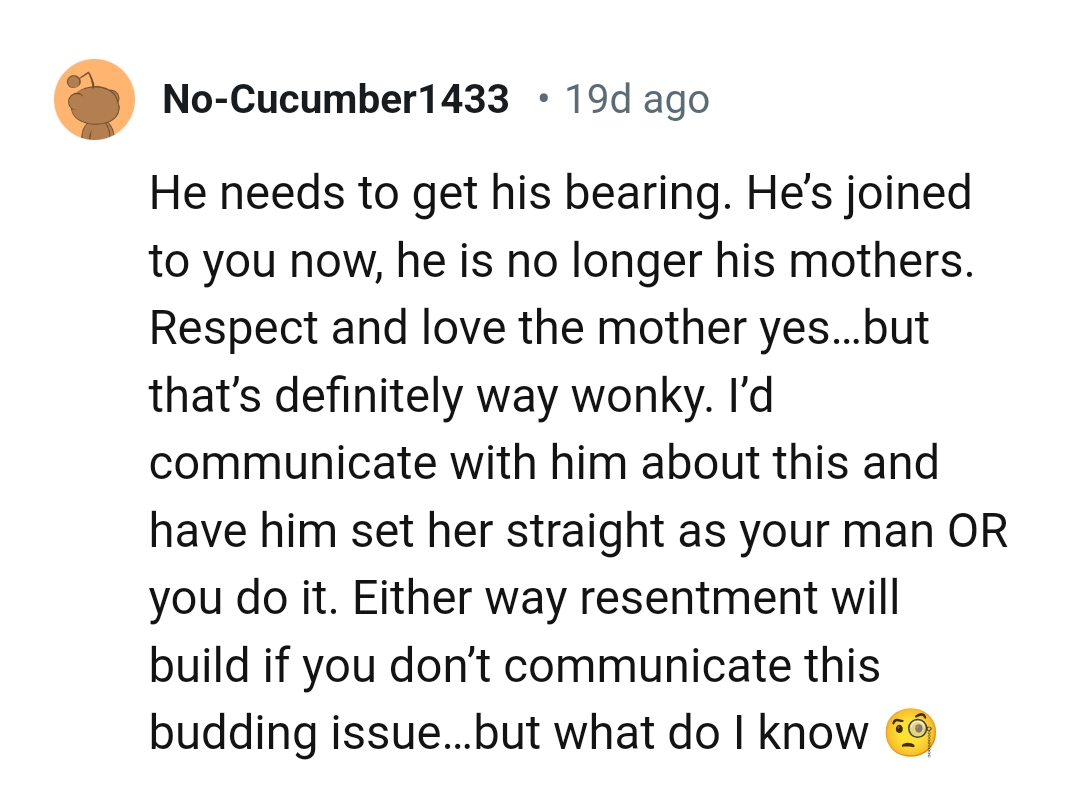
Establishing clear communication regarding caregiving responsibilities can also alleviate some of the stress. A developmental psychologist emphasizes that families should hold discussions about how to share responsibilities equitably, allowing everyone to feel involved and respected.
This not only helps in reducing conflict but also reinforces the sense of teamwork necessary for effective caregiving.
Psychological Analysis
This situation showcases the complexities involved in caregiving dynamics, particularly when multiple family members are involved. It's essential to recognize that each person's emotional needs must be acknowledged and respected.
Encouraging open conversations about responsibilities can lead to a more harmonious caregiving environment.
Analysis generated by AI
Analysis & Alternative Approaches
In summary, navigating caregiving dynamics requires a nuanced understanding of emotional boundaries and effective communication. Establishing clear roles and responsibilities can significantly improve family interactions. As Dr. Alexandra Solomon, a relationship therapist, states, "Healthy boundaries are essential for maintaining respect and understanding in family dynamics." Ultimately, fostering an environment of collaboration and respect is crucial for the well-being of all family members, as emphasized by Dr. Ramani Durvasula, who notes, "Open communication and defined roles can help reduce conflict and enhance support during challenging times."
To give a little background, the OP revealed that when her husband looks down at his phone, the drainage from his nose hurts and makes him dizzy. Additionally, his throat is sore from being intubated during the surgery, as drainage went down his throat because they accessed his nose through the top portion of his mouth.
All this considered, Redditors declared the OP not the AH, as she is supposed to be the primary caregiver, but her MIL is making it impossible.
Practical Approaches to Family Caregiving
Implementing regular family check-ins can be an effective strategy to ensure that everyone is on the same page regarding caregiving responsibilities. This approach allows for open dialogue about any concerns or needs that arise.
Additionally, expressing gratitude and recognition for each family member's contributions can foster a more positive atmosphere, encouraging cooperation and reducing feelings of resentment.



